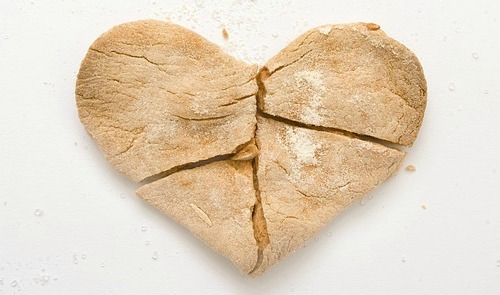I recently read an article by Ed Stezer, director of the Billy Graham Center for Evangelism at Wheaton College, about change. In part, he said:
A few years ago my brother and I had to clean out the two bedroom house that our mom and dad lived in when they passed away. The treasures they spent a lifetime accumulating were mostly of no interest to our spouses, and especially not to our kids. Almost everything went to the Thrift store or the trash.
Sometimes I feel like getting old is similar to cleaning out that house.
The ministries I poured my life into over the last 35 years have changed in ways I never intended. Many of the folks running them today have no idea I started, grew, and led some of those ministries. I gave years of my life to people and ministries and churches, many of whom don’t even remember my name. And why would they since many were little children when I served?
The pain of those changes is directly proportional to the degree my identity and self-worth is linked to my ministry “legacy.”
“Trashing” my treasures hurts because it seems to erase my very existence. I’d like to protect my legacy. It makes me feel useful and significant. But the truth is, 100 years from now no one will even know I existed—no one, that is, except the One who matters most!
“And the King will answer them,
‘Truly, I say to you, as you did it to one of the least
of these my brothers, you did it to me’”
(Matt. 25:40).
Fear not, friends, God does not forget!
Our Lord is now using a new generation of indigenous pastors and expatriate missionaries to dream their own dreams, plan their own futures, and build their own legacies. They have their own obligations and rights to serve their generation as the Lord leads them. I applaud their courage, and pray for their success.
After all, worldwide statisticians find over 75% of all Christians made some form of commitment to Christ before age 18. If this is generally true, and if the role of the church is to reach the world with the Gospel, then it makes sense to concentrate our energies where it will be most effective—reaching families, children, and teens; not preserving our legacy.
So, Ed Stezer’s “pain” may be inevitable, but it’s also a choice. He continues:
I often use my shoes as an example. I hate buying new shoes. My feet are shaped weird and it takes a while to break in a new pair. Bones on the side of my feet rub against the new shoe, giving me blisters for three weeks until it has worn down in the right areas. So, I just don’t buy new shoes unless things become unbearable.
I wear my shoes until the soles have holes in them. I’ll keep ignoring the ever-growing hole because it’s not bad enough for me to endure the way my feet hurt in new shoes. Then winter comes and everything changes. Walking around Nashville on a day that’s colder than a legalist’s heart, I’ll step into a barely above freezing puddle of water. It will shoot up between my toes, into my sock, and sit there. Now, I’m finally thinking, “I’ve got to change!”
Here’s the principle:
People never change
until the pain of staying the same
becomes greater than the pain of change.
That’s why there can’t be change without pain. (Therefore) leaders have to help their churches hurt for the things that Scripture tells us God hurts for.
And Jesus went throughout all the cities and villages,
teaching in their synagogues and proclaiming the gospel of the kingdom
and healing every disease and every affliction.
When he saw the crowds, he had compassion for them,
because they were harassed and helpless,
like sheep without a shepherd.
Then he said to his disciples, “The harvest is plentiful,
but the laborers are few; therefore pray earnestly to the Lord of the harvest
to send out laborers into his harvest”
(Matthew 9:35-38).
The body of Christ has to ache for those things that the Spirit of God leads them to, not the things they are told to hurt over by American culture and personal preference. Change will require pain, but pain directed properly will bring results that are worth it.
Friends, if the shoe fits, I leave you with Hebrews 6:10:
“For God is not unjust
so as to overlook your work
and the love that you have shown
for his name in serving the saints,
as you still do.”
In the love of the Lamb,
Pastor Steven

